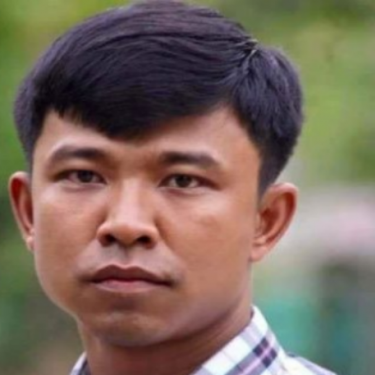RSF urges Burma to step up investigation into reporter’s murder

Reporters Without Borders (RSF) calls on the Burmese authorities to step up their investigation into newspaper reporter Soe Moe Tun’s week-old murder in the northwestern city of Monywa and to redouble efforts to identify who masterminded his death.
The reporter, who was based in Monywa and worked for Burma’s Daily Eleven newspaper, had recently covered the proliferation of illegal karaoke bars in the city as well as illegal logging in the surrounding region.
After his badly beaten body was found on the city’s outskirts on 13 December, the police formed a special team to investigate his death.
In an initial statement, they said they believed that his murder was premeditated and that at least two people carried it out. The stick used to beat him was found near the body but the fingerprints had been wiped off. Investigators were examining the victim’s phone records and six people were being questioned, they said.
“We welcome the progress so far made by the police and the fact that they are working on the assumption that Soe Moe Tun was probably killed in connection with his work,” said Benjamin Ismaïl, the head of RSF’s Asia-Pacific desk.
“But the time and resources available to the investigators are limited. Light needs to be shed on this case as soon as possible because each passing day will make it harder to identify the perpetrators and instigators of this journalist’s appalling murder. If murders are solved, it is usually in the first few days. As time goes by, the danger grows that this murder will go unpunished.”
Soe Moe Tun, who had worked for the Daily Eleven since the start of 2015, is the second journalist to be killed in connection with his work since the end of military rule in 2011. The other was Aung Kyaw Naing, a freelancer who was shot dead while in military custody in October 2014.
Zayar Hlaing, a member of the Myanmar Press Council, said Soe Moe Tun was the fifth journalist to be killed since 1999. “The government must make sure there is no impunity for the culprits and the rule of law should be implemented,” he said.
Media personnel are often threatened in Burma because of their reporting, UNESCO said in a statement last month, adding that “ending impunity on all the harassment against journalists is the most important step toward guaranteeing the safety of journalists.”
Although significant progress was made from 2011 to 2014, the media freedom situation continues to be a source of concern in Burma, which is ranked 143rd out of 180 countries in RSF’s 2016 World Press Freedom Index.



